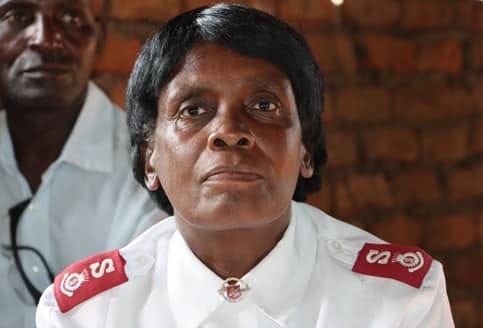Clergy in Malawi's Nsanje District Spearheading Fight Against Child Marriages
Faith leaders in Malawi take a stand against child marriages and gender-based violence, using religious teachings to promote change.
NSANJE, MALAWI — In a surprising turn of events, religious leaders in Malawi's Nsanje District, representing both Islam and Christianity, have shifted their focus from being perpetrators of illegal underage marriages to becoming agents of change in the fight against child marriages, writes Francis Botha.
This transformation was highlighted during an interfaith leaders' dialogue meeting held in Mlolo last week, where faith leaders gathered to share best practises for eliminating early child marriages and gender-based violence (GBV) by drawing on scriptures from the holy Qur'an and Bible.
"The two are inseparable as the Qur'an advocates for respect for the law, protection of girls, and women from sexual abuse, including early child marriages," Sheikh Zameer Mtende from the geographically isolated Makhanga Mosque emphasised.
Since acquiring knowledge in child protection and GBV, Sheikh Zameer added, "Islamic leaders have been keen on mainstreaming anti-early child marriage messages in their teachings across various groups such as madrassah and dawah."
Major Mary Mbwanda, leader of the Salvation Army in the East Bank, also stressed the significance of religious teachings in the fight against child marriages.
"Since I attended training on ending child marriages and GBV organized by NCA/DCA, I have taken advantage of every religious and social gathering to denounce the growing tendency of marrying off underage girls, which is against Christian values," she said.
Major Mbwanda's efforts have had a multiplier effect among faith communities in the district.
"The strategy of equipping religious leaders with knowledge on anti-early child marriages has a swift and effective multiplier effect among the faith communities in the district, as many faith leaders have started using sacred texts from either the Bible or Qur'an to denounce child marriages," she stated.
Yankho Kaliati, the FOCESE Project Officer, expressed enthusiasm about the clergy's proactive approach.
"We can't keep on normalising early child marriages in the name of cultural traditions. I’m excited that the clergy are breaking these barriers while working closely with the government's offices of Gender and Social Welfare. As FOCESE, we will continue supporting the clergy by creating a safer environment for young women and girls," Kaliati affirmed.
Migara Hanneck, a child protection worker in the area, praised the approach for helping to expose cases of incest, defilement, and early child marriages.
"The approach has helped to unearth cases of incest, defilement, and early child marriages, some of which his office has already successfully prosecuted," Hanneck stated.
The project also includes a social support component where those at risk of early marriage or who have been withdrawn from such marriages receive assistance.
Despite the outlawing of child marriages in Malawi's Parliament in 2015, the prevalence of underage marriages remains a pressing issue.
According to the Malawi Demographic Health Survey 2016, nearly half of all girls in the country are married by the age of 18, with a third of those aged 15–19 already experiencing childbearing, contributing to a significant number of pregnancies.
Malawi, being a predominantly religious country, relies heavily on the teachings and sentiments of faith leaders, who hold significant authority in their communities.
The current efforts by these clergy members to combat child marriages and GBV, supported by UNICEF, are seen as a crucial step towards fostering a safer and more supportive environment for girls and women in the region.



